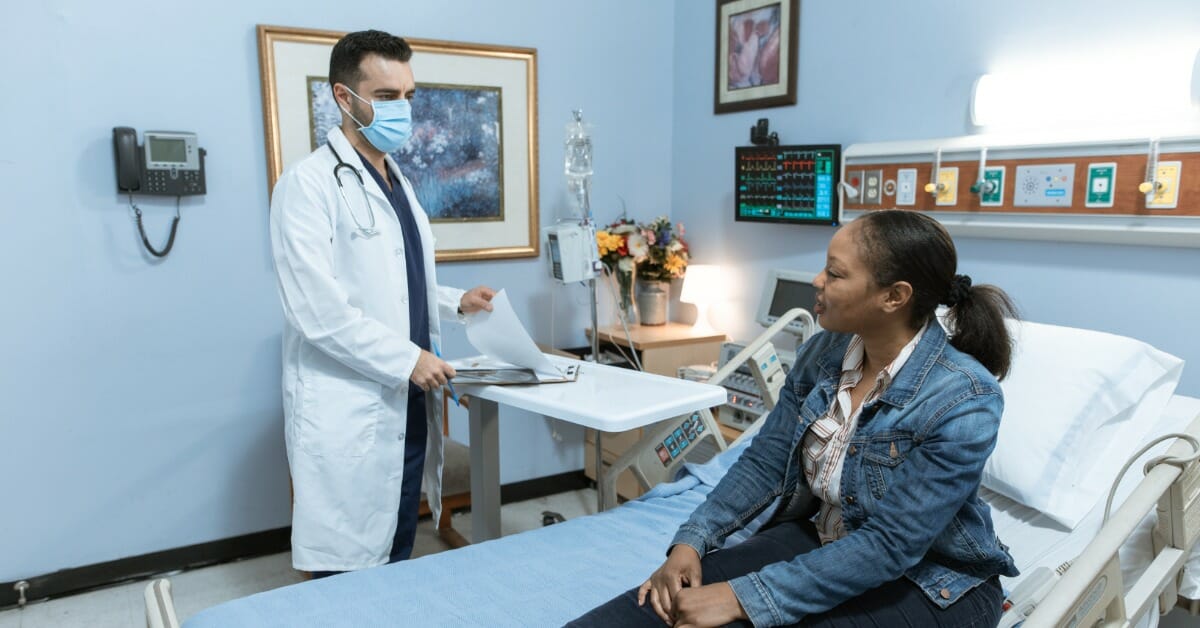What do all of these people have in common? They all have the potential to have a medical malpractice or negligence case filed against them. For this reason, no matter where you are in your career, it is extremely important to learn the ins and outs of medical malpractice in order to protect yourself and your patients.
As a medical professional, you are expected to provide a high standard of care to ensure that every patient receives safe and appropriate health care. However, mistakes can happen to anyone at any point in their medical career. If they do, they can lead to serious consequences if you are not educated about your rights and the laws in place to protect both physicians and patients.
In this article, we will explore the differences between negligence and medical malpractice and provide valuable information so you can protect yourself from medical malpractice claims.
What is Negligence?
Negligence is the failure of a person or entity to exercise the appropriate level of care necessary to protect others from harm that a reasonable, prudent person should be aware of.
This term applies to actions that cause physical, emotional, or financial harm and is often used in personal injury cases (e.g., car accidents, slip and falls) and medical injuries.
Elements of negligence
There are several key elements in negligence that are essential to be aware of. To establish negligence in a legal claim, the plaintiff must prove the following:
- Duty of care: The defendant had a legal duty to protect the plaintiff’s safety.
- Breach of duty: The defendant breached their duty to protect the plaintiff’s safety by failing to act with the required standard of care.
- Causation: The defendant’s breach of duty directly caused the plaintiff’s injury or loss.
- Damages: The plaintiff suffered damages as a result of the defendant’s negligence.
What is Medical Negligence?
Medical negligence includes the same four elements as general negligence, but with a few specific qualifiers. In a case of medical negligence, the defendant must be a qualified medical professional or institution, such as a physician, nurse, surgeon, dentist, hospital, or clinic. The primary focus is on whether the medical professional’s actions or omissions deviated from the accepted standard of care.
Factors to consider in medical negligence
To determine medical negligence, the following factors are considered:
- Did the medical professional’s actions or omissions lack the degree of care that a reasonable person in the same situation would have taken?
- Was there a foreseeable likelihood that the medical professional’s conduct could result in harm?
What is Medical Malpractice?
Medical malpractice refers to a circumstance when a healthcare provider violates an established standard of care, causing harm or injury to a patient.
This violation can result from negligent actions, omissions, or misconduct by the medical professional. Medical malpractice is considered a more severe form of medical negligence, as it often involves more serious injuries and legal consequences.
Elements of medical malpractice
There are some key elements to consider in medical practice cases. To establish medical malpractice, the injured patient must prove the following:
- An existing relationship: There was a patient–physician relationship during the time of the injury.
- Violation of the standard of care: The medical provider’s actions deviated from the accepted standard of care.
- Causation: The medical provider’s negligence or misconduct directly caused the patient’s injuries.
- Damages: The patient sustained economic and noneconomic damages as a result of the medical provider’s actions.
Comparing Medical Negligence and Medical Malpractice
The primary distinction between medical negligence and medical malpractice lies in the presence or absence of intent. In medical malpractice cases, the injured patient must prove that the medical professional knew or should have known that their actions would result in harm, leading to a breach of the standard of care. In contrast, negligence cases only require proof of an unintended act or omission.
Examples of medical negligence and medical malpractice
Here are some examples to illustrate the differences between medical negligence and medical malpractice:
- Medical negligence: A nurse accidentally administers the wrong medication to a patient, resulting in an adverse reaction.
- Medical malpractice: A surgeon performs a surgery without obtaining informed consent from the patient, leading to complications and additional medical expenses.
The Role of Duty of Care in Medical Malpractice and Negligence Cases
In both medical negligence and malpractice cases, the concept of duty of care plays a crucial role. Duty of care refers to the legal obligation of a healthcare provider to ensure the safety and well-being of their patients. Establishing a duty of care is essential for proving medical negligence or malpractice, as it demonstrates that the medical professional had a responsibility to provide appropriate care to the patient.
Tips for Medical Professionals to Protect Themselves from Medical Malpractice Claims
As a medical professional, it is essential to be proactive to minimize the risk of medical malpractice claims. Here are some tips to help protect yourself:
- Maintain clear and open communication with patients: Ensure that your patients fully understand their medical condition, treatment options, and potential risks involved. Always obtain informed consent before performing any procedures or treatments.
- Stay up-to-date with industry standards and guidelines: Regularly attend continuing education courses and stay informed about the latest advancements in your field. This will help you provide the highest standard of care to your patients and reduce the likelihood of medical errors.
- Implement and follow proper protocols: Establish clear protocols for patient care, and ensure that you and your staff adhere to them consistently. This can help prevent errors and demonstrate your commitment to patient safety.
- Maintain accurate and thorough medical records: Proper documentation is essential for demonstrating that you provided appropriate care to your patients. Make sure to document all aspects of patient care, including diagnoses, treatments, and follow-up care.
- Seek consultation and collaboration with colleagues: If you are unsure about a particular case or treatment plan, consult with colleagues or seek a second opinion. This collaborative approach can help ensure that you are providing the best possible care to your patients.
- Obtain and maintain adequate malpractice insurance: Medical malpractice insurance can offer you protection in the event of a lawsuit. Ensure that you have sufficient coverage and understand the terms of your policy.
Conclusion
It can be overwhelming when you start practicing medicine. There is a lot to learn, and being aware of medical malpractice and medical negligence is crucial for both patients and medical professionals. Medical professionals must take preventive measures to ensure patient safety and protect themselves from medical malpractice claims. By maintaining a high standard of care and following best practices, medical professionals can minimize the risk of negligence and malpractice, which will ultimately lead to better patient outcomes.





